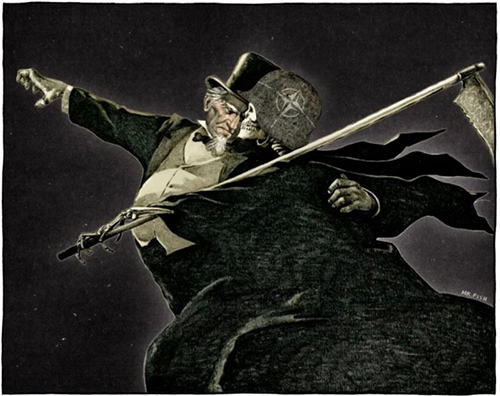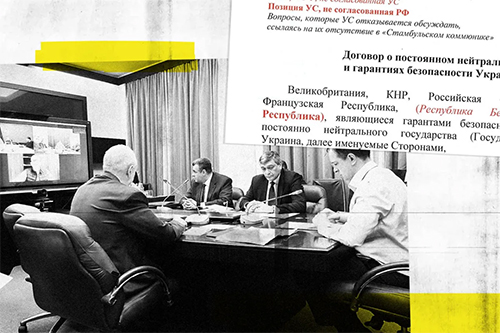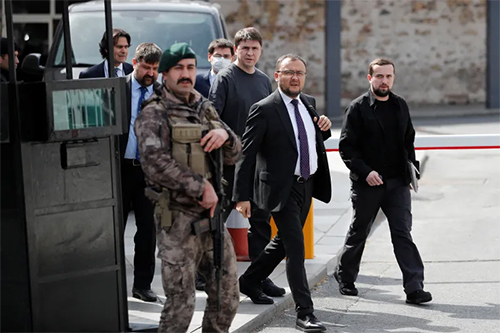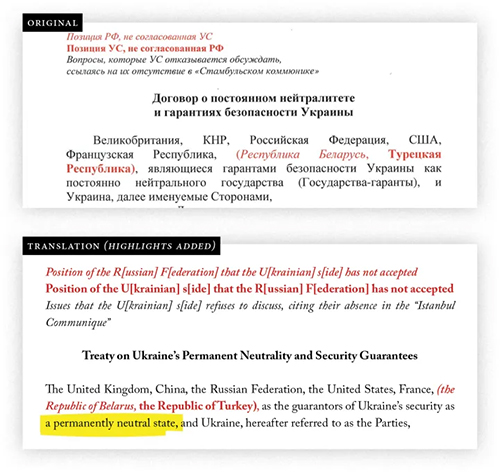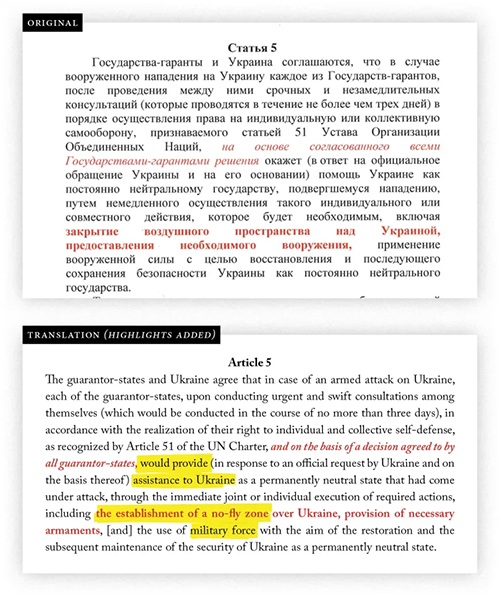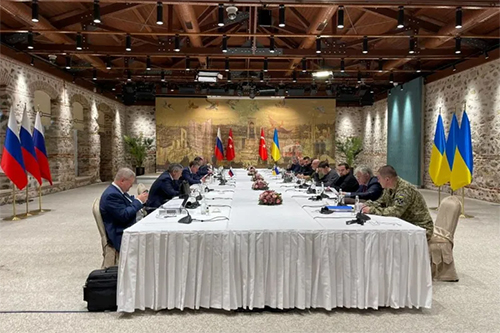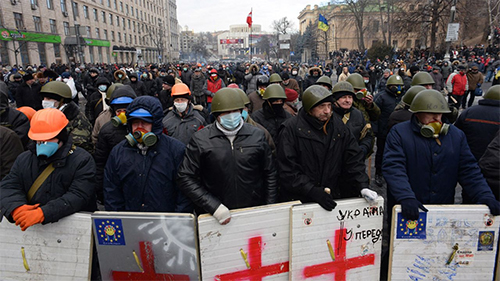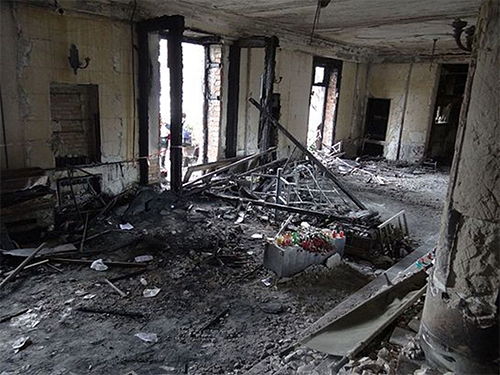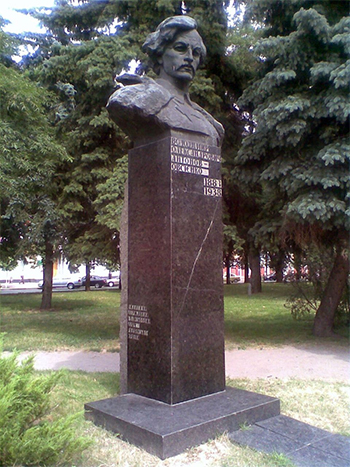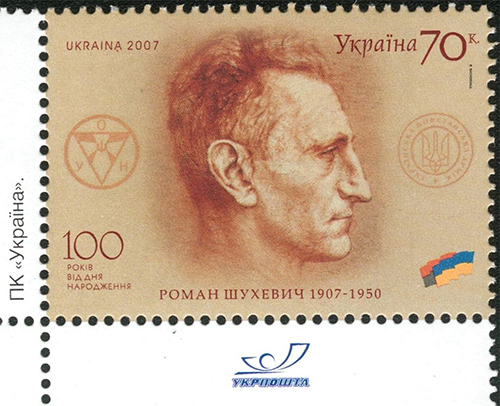NATO Ramps Up Rhetoric Against China & Russia. Is Biden Lead
NATO Ramps Up Rhetoric Against China & Russia. Is Biden Leading the U.S. into a New Cold War?
by Amy Goodman
DemocracyNow
JUNE 15, 2021
https://www.democracynow.org/2021/6/15/ ... ia_threats
NOTICE: THIS WORK MAY BE PROTECTED BY COPYRIGHT
GUESTS: Stephen Wertheim: director of grand strategy at the Quincy Institute and a visiting faculty fellow at the Center for Global Legal Challenges at Yale Law School.
LINKS
Stephen Wertheim on Twitter
"Sorry, Liberals. But You Really Shouldn't Love NATO"
"Tomorrow, the World: The Birth of U.S. Global Supremacy"
China says NATO is adopting a “Cold War mentality” after the military alliance singled out China and Russia for criticism during a summit in Brussels. In its final communiqué, NATO leaders said, “China’s stated ambitions and assertive behavior present systemic challenges to the rules-based international order.” NATO leaders also criticized Russia and called on Moscow to withdraw troops from Ukraine, Georgia and the Republic of Moldova. Stephen Wertheim, a historian of U.S. foreign policy, says he is concerned that the Biden administration is “moving toward a quite hostile posture toward China and Russia simultaneously.” He also says policymakers need to urgently reevaluate the purpose of NATO, which he says could fuel greater conflict. “Is that really what the American people need for the rest of the 21st century?” he asks.
Transcript
This is a rush transcript. Copy may not be in its final form.
AMY GOODMAN: This is Democracy Now! I’m Amy Goodman, with Juan González.
China is warning NATO is adopting a “Cold War mentality” after the military alliance singled out China and Russia for criticism during the NATO summit in Brussels that just wrapped. President Biden successfully pushed NATO, the North Atlantic Treaty Organization, to declare China to be a security risk for the first time. In its final communiqué, NATO leaders said, quote, “China’s stated ambitions and assertive behavior present systemic challenges to the rules-based international order,” unquote. NATO leaders also criticized Russia and called on Moscow to withdraw troops from Ukraine, Georgia and the Republic of Moldova.
This is President Biden speaking in Brussels Monday.
PRESIDENT JOE BIDEN: There is a growing recognition over the last couple years that we have new challenges. And we have Russia that is not acting in a way that is consistent with what we had hoped, and as well as China.
AMY GOODMAN: President Biden spoke alongside NATO Secretary General Jens Stoltenberg, who also criticized China.
JENS STOLTENBERG: We are concerned by China’s coercive policies, which stand in contrast to the fundamental values enshrined in the Washington Treaty. China is rapidly expanding its nuclear arsenal with more warheads and a large number of sophisticated delivery systems. … NATO leaders called on China to uphold its international commitments and to act responsibly in the international system, including in space, cyber and maritime domains, in keeping with its role as a major power.
AMY GOODMAN: The Chinese Mission to the European Union responded to the NATO summit by saying, quote, ”NATO is slandering China’s peaceful development and misjudging the international situation and its own role,” end-quote.
Today, President Biden is meeting with European Union leaders before heading to Geneva for his summit with Russian President Vladimir Putin.
We’re joined now by the historian Stephen Wertheim, director of grand strategy at the Quincy Institute and a visiting faculty fellow at the Center for Global Legal Challenges at Yale Law School, author of the book Tomorrow, the World: The Birth of U.S. Global Supremacy. He has a new article in The New York Times headlined “Sorry, Liberals. But You Really Shouldn’t Love NATO.”
Welcome to Democracy Now!, Stephen Wertheim. Why don’t you talk about the NATO summit, this first-ever hit on China, in the way it was framed in the communiqué? Is President Biden leading to a new Cold War, both with China and Russia?
STEPHEN WERTHEIM: It’s nice to be with you.
I am concerned that, indeed, the administration may be moving toward a quite hostile posture toward China and Russia simultaneously. If it is doing so, it would be merely continuing a trend from the Trump administration, I must say.
That said, though I think you are right to spotlight what was most remarkable about the outcome of yesterday’s NATO summit — namely, the identification of China as posing, quote-unquote, “systemic challenges” to the so-called rules-based international order — I do think it’s actually quite worrying, as far as the European members of NATO are concerned. Europe has, for quite some time, been reluctant to cast China as a threat, for understandable reasons. Many Europeans, including the leading powers of Germany and France, don’t want to make a choice, economically or otherwise, between the United States and China or between the United States and Russia. And it has been the United States that has been most concerned about the threats from both countries. And so, I think the NATO communiqué reflects NATO’s desire to at least look like the European members are as concerned about China as the United States. But to the extent that the United States will indeed focus on competition with China, in the longer term, that heralds a turn toward Asia and, therefore, away from Europe.
JUAN GONZÁLEZ: And, Stephen Wertheim, I wanted to ask you about this whole issue of this systemic challenge. The last time I looked, the United States had 800 military bases and installations in about 70 countries around the world. And apparently, China only has four military bases anywhere in the world. They’ve got one in Argentina. They’ve got a small one in Djibouti, which is part of the whole international campaign against piracy. They’ve got one in Myanmar, and they’ve got one in Tajikistan. This doesn’t sound like much of a threat to NATO or to the United States. And we’re not even mentioning that Turkey has expended all kinds of military bases, as a member nation of NATO, all around the world in recent years. So, why is this obsession with presidents of the U.S., whether it’s Biden or Trump, in continuing to paint China as some kind of a threat — not an economic competitor, which it is, and a growing economic competitor, but as a threat?
STEPHEN WERTHEIM: Well, it is worrying for the reason you say. The language of systemic competition and challenge to the rules-based international order seems to lump all of the issues that China’s rise throws up. It lumps them together into one thing that seems to require a response in every domain. But China’s record militarily is vastly different from that of even the United States over the last few decades, I’m sorry to say. It’s not China that has scattered its troops all around the world on bases, as you say, or pursued missions to overturn regimes.
China’s behavior is very worrying in a lot of respects. And I do actually think that the United States and Europe have a lot to cooperate on in terms of setting standards for technologies, for digital, to set rules economically that might constrain Chinese action to cooperate on climate change. There’s plenty of things for the United States and Europe to do together. That’s valuable. And that will, to some degree, constrain Chinese action, and that’s a good thing.
But NATO is a military alliance. We have to remember that. And so, for NATO to be casting China in this way suggests that it does view China as something of a threat, although the NATO communiqué was careful to use the word “threat” toward Russia, but to use the lesser — less intense word “challenge” when it came to China.
JUAN GONZÁLEZ: And I’m wondering if you could comment on the G7, the new initiative they’re calling Build Back Better for the World, or B3W, as a possible alternative to China’s Belt and Road Initiative, because I don’t think many people in the United States appreciate the impact that China’s Belt and Road Initiative has had in the developing world, and also, in the period of the pandemic, its efforts to export vaccines. I think it’s now — China has already exported 700 million doses to the rest of the world, which is about what the G7 is promising to do in the future. And it’s already, my understanding is, providing 20 million vaccinations per day to its own people. Whereas here in the United States we’re at 1, 2 million vaccinations per day, they’re doing 20 million per day. How does this, both the Belt and Road Initiative and its vaccine diplomacy, having an impact on how the rest of the world sees China?
STEPHEN WERTHEIM: We saw the G7 on Friday act as though it needs to really meet China’s activity in both of these domains — vaccines and development aid. And that could be a good thing if it ends up generating productive forms of competition, if it means that the G7 become more generous with their provision of vaccine doses, if it means that development aid becomes more plentiful, which it has not been, from the West.
This Build Back Better for the World thing is mostly a slogan or a hashtag at this point. It’s got an abbreviation, the three Bs or whatever it is, before it really has substance. So we’ll have to see what actually comes of it.
The worrying aspect, though, would be that rather than create a kind of a race to the top, we have a race to the bottom. And for the developing world, there are increasing strings attached, whether they make a choice between China’s aid or U.S.-led Western aid.
So, we need only to think back to the Cold War to think about what may be in store going forward, if indeed this kind of intense security competition, something like a Cold War, does set in between the West and China. On the one hand, in the Cold War, some members of the Global South were able to use their leverage, to use the interest of both sides to try to play them off each other and obtain more benefits. That could be good in certain circumstances. But then sometimes they found out that the superpowers were not pleased if they would take aid from one side, and such aid was cast as a threat to the other side and could lead to even the overthrow of governments.
So, at this early stage, I don’t think we know which dynamic will prevail, but I have to say that the G7 did not come up with a terribly impressive number of vaccines that the members pledged to provide to the international facility that will be distributing vaccines. It was under a billion doses. Many, many more doses are needed, multiples of that number, in order to vaccinate the world. Now, perhaps this meeting will generate some momentum and further gains going forward, but it disappointed a lot of people, and there was a lot of criticism from, you know, the former U.K. leader, Gordon Brown, and WHO officials.
AMY GOODMAN: You have, for example, in Trinidad and Tobago, the United States pledged something like 500 vaccines to Trinidad and Tobago; China, 200,000. But I wanted to ask you — in your piece in The New York Times, you write, “The danger of permanent subordination to America has started to register in European capitals, long solicitous of American commitment. President [Emmanuel] Macron of France has accused NATO of experiencing 'brain death' and proposed creating an independent European army,” independent of the United States. Can you talk about this? While there’s a lot of backslapping and “Oh, we’re back together again” in this 72-year-old military alliance that Trump said he wanted to get rid of, you also have a lot of tension here between European leaders and the United States, especially in the push against the pushback against China and Russia.
STEPHEN WERTHEIM: Yeah, I think this is the main story, actually, of the NATO summit. The narrative that NATO wants to tell is about all these actions that will be taken against China and Russia, but very little under the surface was this notion that America’s commitment to NATO has come under question. And on both sides of the Atlantic, there’s a reckoning with whether the interests of the United States and the interests of Europe and its leading powers really do align so closely as to bind them into this military alliance.
And so, President Biden was intent on having a clear statement that America is back, and he repeated that America has a “sacred obligation,” “sacred” commitment — his words — to the collective defense provision of NATO. But this comes after, you know, not only the Trump presidency, but stirrings within European capitals to realize that, as German Chancellor Angela Merkel put it, Europe must truly take its destiny into its own hands. And now “strategic autonomy” has become the watchword in Brussels, where the idea is that, in some fashion, it would be that EU, independent of the United States, outside of NATO, that would become more of a force in security and military affairs. I think that’s quite a sensible idea at this point in history. And I think even Biden understands that his words about a “sacred” commitment matter much less than what America actually does, not just under his administration, but long after.
And in addition to that, I think we’ve come to a kind of inflection point in the history of NATO after the collapse of the Soviet Union. It’s now very hard to see how NATO could possibly expand any further. And yesterday, the Ukrainian president, Zelensky, tried to send out a tweet that he had gotten these assurances that Ukraine would indeed become a member of NATO, which it’s been on a path to becoming — a very slow path, we should say — since 2008. And Biden was not very thrilled with that, it seemed, from the subsequent press conference, in which he said, “Well, Ukraine has to meet its obligations to become a member. We’ll see.” You know, the jury is not out, essentially. And I think we have come to a point where it’s just very implausible, frankly, that Ukraine and Georgia would become NATO members and really pose a risk of direct conflict with Russia.
So, what the Biden administration has not done is close the door on further expansion of NATO. And that might be, frankly, a valuable step, not just for the United States and for the other members of NATO, but even for Ukraine itself, which is hoping for membership, but I fear it’s being led down a false path, because the fact is that Germany and France oppose Ukraine’s membership. They oppose it for very good reasons, because it risks conflict and further conflict, given that there is an ongoing conflict in eastern Ukraine.
AMY GOODMAN: So, president —
JUAN GONZÁLEZ: And I’m wondering —
AMY GOODMAN: Go ahead, Juan.
JUAN GONZÁLEZ: Yeah, I’m wondering — back in October, you wrote a piece headlined “America Has No Reason to Be So Powerful.” And I’m wondering what the — given the fact, as I mentioned before, this continued huge military footprint of the United States around the world, once you have such a humongous military-industrial complex, it must always find enemies, doesn’t it, to be able to justify its continued existence? And to what degree can the public, or even some political leaders, break away from this sense that the United States must be the policeman of the world?
STEPHEN WERTHEIM: I share that concern. And I think the fact that the United States had built up not just its military-industrial complex domestically, but also its relationships and military positions globally, that explains a lot of the kind of inertia that we saw after the collapse of the Soviet Union, when you would think that the reason for being of this massive national security state had gone away.
That said, I think we are seeing stirrings, at least, of change over the last decade or so. Everybody has to understand now that we are no longer living in the unipolar moment of the 1990s, when the United States was utterly dominant. Through that decade, it could cut its defense spending as a percentage of GDP only to emerge in a more unrivaled position than ever before by the end of the decade. Well, the rest of the world has not exactly caught up, but other countries have asserted themselves, and China, most of all, has dramatically risen economically, with military growth to match its economic growth.
So, I think that, you know, most people in Washington, even if they don’t agree with some of what I write, understand that real change is necessary, and the United States cannot possibly continue to be the guarantor of about half of the world against the other half of the world where most of humanity are, thus turning that half into explicit or implicit threats.
AMY GOODMAN: Stephen Wertheim, I wanted to ask you about what’s about to happen on Wednesday. That’s the Biden-Putin summit in Geneva. In a new interview on NBC, Putin criticized the United States for placing troops near the Russian border.
PRESIDENT VLADIMIR PUTIN: [translated] Imagine that we sent our troops into direct proximity to your borders. What would be your response? We didn’t do that. We did it in our territory. You conducted war games in Alaska. Well, God bless you, but you crossed an ocean close to our borders, brought thousands of personnel and thousands of units of military equipment. And yet you believe that we are acting aggressively and somehow you’re not. Just look at that: pot calling the kettle black.
AMY GOODMAN: Can you respond to this and also this back-and-forth? You know, President Biden calling Putin a killer, then NBC asked Putin about that, he laughed. And then, when Biden was asked about Putin laughing, Biden laughed.
STEPHEN WERTHEIM: Well, I do think that both leaders are somewhat toning down their rhetorical barrages in advance of their summit, and that’s probably a good thing. I do want to give credit to the Biden administration and the president, in particular, for staunchly defending the value of diplomacy and making a point that the point of diplomacy is to meet with leaders of countries with whom we have issues; otherwise, we can pack it up, in terms of our diplomacy. So, that’s exactly right. And he’s trying to kind of tone down the, I would say, overheated rhetoric and personal rhetoric toward Vladimir Putin.
I hope that the summit will prove productive beyond the symbolism, which is not without value itself. But the broader pattern, I think, needs to be considered, of U.S. policy, where indeed the United States has placed troops and made defense commitments that now span most of Europe, going right up to the borders of Russia in the cases of the Baltics and with Ukraine having a path, a potential path, toward membership in the U.S.-led NATO alliance.
And it isn’t surprising, and indeed was predicted by many people, left and right and center, back in the 1990s, when NATO expansion was first put on the table and first endorsed — the Senate in 1998 held a vote to admit the first three new members of NATO. It was predicted at that time by many people — my piece in yesterday’s New York Times cites the Minnesota Senator Paul Wellstone, that the expansion of NATO would be seen by Russia, could not be seen otherwise by Russia, except as a threat to itself, even if, for some period of time, it wouldn’t have the capacity to respond, given its economic travails in the wake of the collapse of the Soviet Union. And now that expansion has been taken, I fear, too far.
And so, we’ve created a kind of self-fulfilling prophecy. And this is not to defend many of the actions that Russia has taken, including the annexation of Crimea, its support for separatists in the Donbas region of Ukraine, but, you know, wise diplomats and political leaders will understand how other countries view their vital interests and listen to those countries when they repeatedly make clear what those vital interests are. So, I fear that we’ve set ourselves on a path of a self-fulfilling prophecy in generating conflict. And what I worry about is that if the United States, in particular, doesn’t break this pattern, it sets us up for the next two, three decades — my lifetime, my children’s lifetime — to be, at best, involved in intense standoffs with Russia and China, and perhaps others around the world. And at worst, it sets us up for a great power war, for World War III. Is that really what the American people need for the rest of the 21st century?
AMY GOODMAN: Historian Stephen Wertheim, I want to thank you for being with us, director of grand strategy at the Quincy Institute, visiting faculty fellow at the Center for Global Legal Challenges at Yale Law School. We’ll link to your piece in The New York Times, “Sorry, Liberals. But You Really Shouldn’t Love NATO.” His book, Tomorrow, the World: The Birth of U.S. Global Supremacy.
by Amy Goodman
DemocracyNow
JUNE 15, 2021
https://www.democracynow.org/2021/6/15/ ... ia_threats
NOTICE: THIS WORK MAY BE PROTECTED BY COPYRIGHT
YOU ARE REQUIRED TO READ THE COPYRIGHT NOTICE AT THIS LINK BEFORE YOU READ THE FOLLOWING WORK, THAT IS AVAILABLE SOLELY FOR PRIVATE STUDY, SCHOLARSHIP OR RESEARCH PURSUANT TO 17 U.S.C. SECTION 107 AND 108. IN THE EVENT THAT THE LIBRARY DETERMINES THAT UNLAWFUL COPYING OF THIS WORK HAS OCCURRED, THE LIBRARY HAS THE RIGHT TO BLOCK THE I.P. ADDRESS AT WHICH THE UNLAWFUL COPYING APPEARED TO HAVE OCCURRED. THANK YOU FOR RESPECTING THE RIGHTS OF COPYRIGHT OWNERS.
GUESTS: Stephen Wertheim: director of grand strategy at the Quincy Institute and a visiting faculty fellow at the Center for Global Legal Challenges at Yale Law School.
LINKS
Stephen Wertheim on Twitter
"Sorry, Liberals. But You Really Shouldn't Love NATO"
"Tomorrow, the World: The Birth of U.S. Global Supremacy"
China says NATO is adopting a “Cold War mentality” after the military alliance singled out China and Russia for criticism during a summit in Brussels. In its final communiqué, NATO leaders said, “China’s stated ambitions and assertive behavior present systemic challenges to the rules-based international order.” NATO leaders also criticized Russia and called on Moscow to withdraw troops from Ukraine, Georgia and the Republic of Moldova. Stephen Wertheim, a historian of U.S. foreign policy, says he is concerned that the Biden administration is “moving toward a quite hostile posture toward China and Russia simultaneously.” He also says policymakers need to urgently reevaluate the purpose of NATO, which he says could fuel greater conflict. “Is that really what the American people need for the rest of the 21st century?” he asks.
Transcript
This is a rush transcript. Copy may not be in its final form.
AMY GOODMAN: This is Democracy Now! I’m Amy Goodman, with Juan González.
China is warning NATO is adopting a “Cold War mentality” after the military alliance singled out China and Russia for criticism during the NATO summit in Brussels that just wrapped. President Biden successfully pushed NATO, the North Atlantic Treaty Organization, to declare China to be a security risk for the first time. In its final communiqué, NATO leaders said, quote, “China’s stated ambitions and assertive behavior present systemic challenges to the rules-based international order,” unquote. NATO leaders also criticized Russia and called on Moscow to withdraw troops from Ukraine, Georgia and the Republic of Moldova.
This is President Biden speaking in Brussels Monday.
PRESIDENT JOE BIDEN: There is a growing recognition over the last couple years that we have new challenges. And we have Russia that is not acting in a way that is consistent with what we had hoped, and as well as China.
AMY GOODMAN: President Biden spoke alongside NATO Secretary General Jens Stoltenberg, who also criticized China.
JENS STOLTENBERG: We are concerned by China’s coercive policies, which stand in contrast to the fundamental values enshrined in the Washington Treaty. China is rapidly expanding its nuclear arsenal with more warheads and a large number of sophisticated delivery systems. … NATO leaders called on China to uphold its international commitments and to act responsibly in the international system, including in space, cyber and maritime domains, in keeping with its role as a major power.
AMY GOODMAN: The Chinese Mission to the European Union responded to the NATO summit by saying, quote, ”NATO is slandering China’s peaceful development and misjudging the international situation and its own role,” end-quote.
Today, President Biden is meeting with European Union leaders before heading to Geneva for his summit with Russian President Vladimir Putin.
We’re joined now by the historian Stephen Wertheim, director of grand strategy at the Quincy Institute and a visiting faculty fellow at the Center for Global Legal Challenges at Yale Law School, author of the book Tomorrow, the World: The Birth of U.S. Global Supremacy. He has a new article in The New York Times headlined “Sorry, Liberals. But You Really Shouldn’t Love NATO.”
Welcome to Democracy Now!, Stephen Wertheim. Why don’t you talk about the NATO summit, this first-ever hit on China, in the way it was framed in the communiqué? Is President Biden leading to a new Cold War, both with China and Russia?
STEPHEN WERTHEIM: It’s nice to be with you.
I am concerned that, indeed, the administration may be moving toward a quite hostile posture toward China and Russia simultaneously. If it is doing so, it would be merely continuing a trend from the Trump administration, I must say.
That said, though I think you are right to spotlight what was most remarkable about the outcome of yesterday’s NATO summit — namely, the identification of China as posing, quote-unquote, “systemic challenges” to the so-called rules-based international order — I do think it’s actually quite worrying, as far as the European members of NATO are concerned. Europe has, for quite some time, been reluctant to cast China as a threat, for understandable reasons. Many Europeans, including the leading powers of Germany and France, don’t want to make a choice, economically or otherwise, between the United States and China or between the United States and Russia. And it has been the United States that has been most concerned about the threats from both countries. And so, I think the NATO communiqué reflects NATO’s desire to at least look like the European members are as concerned about China as the United States. But to the extent that the United States will indeed focus on competition with China, in the longer term, that heralds a turn toward Asia and, therefore, away from Europe.
JUAN GONZÁLEZ: And, Stephen Wertheim, I wanted to ask you about this whole issue of this systemic challenge. The last time I looked, the United States had 800 military bases and installations in about 70 countries around the world. And apparently, China only has four military bases anywhere in the world. They’ve got one in Argentina. They’ve got a small one in Djibouti, which is part of the whole international campaign against piracy. They’ve got one in Myanmar, and they’ve got one in Tajikistan. This doesn’t sound like much of a threat to NATO or to the United States. And we’re not even mentioning that Turkey has expended all kinds of military bases, as a member nation of NATO, all around the world in recent years. So, why is this obsession with presidents of the U.S., whether it’s Biden or Trump, in continuing to paint China as some kind of a threat — not an economic competitor, which it is, and a growing economic competitor, but as a threat?
STEPHEN WERTHEIM: Well, it is worrying for the reason you say. The language of systemic competition and challenge to the rules-based international order seems to lump all of the issues that China’s rise throws up. It lumps them together into one thing that seems to require a response in every domain. But China’s record militarily is vastly different from that of even the United States over the last few decades, I’m sorry to say. It’s not China that has scattered its troops all around the world on bases, as you say, or pursued missions to overturn regimes.
China’s behavior is very worrying in a lot of respects. And I do actually think that the United States and Europe have a lot to cooperate on in terms of setting standards for technologies, for digital, to set rules economically that might constrain Chinese action to cooperate on climate change. There’s plenty of things for the United States and Europe to do together. That’s valuable. And that will, to some degree, constrain Chinese action, and that’s a good thing.
But NATO is a military alliance. We have to remember that. And so, for NATO to be casting China in this way suggests that it does view China as something of a threat, although the NATO communiqué was careful to use the word “threat” toward Russia, but to use the lesser — less intense word “challenge” when it came to China.
JUAN GONZÁLEZ: And I’m wondering if you could comment on the G7, the new initiative they’re calling Build Back Better for the World, or B3W, as a possible alternative to China’s Belt and Road Initiative, because I don’t think many people in the United States appreciate the impact that China’s Belt and Road Initiative has had in the developing world, and also, in the period of the pandemic, its efforts to export vaccines. I think it’s now — China has already exported 700 million doses to the rest of the world, which is about what the G7 is promising to do in the future. And it’s already, my understanding is, providing 20 million vaccinations per day to its own people. Whereas here in the United States we’re at 1, 2 million vaccinations per day, they’re doing 20 million per day. How does this, both the Belt and Road Initiative and its vaccine diplomacy, having an impact on how the rest of the world sees China?
STEPHEN WERTHEIM: We saw the G7 on Friday act as though it needs to really meet China’s activity in both of these domains — vaccines and development aid. And that could be a good thing if it ends up generating productive forms of competition, if it means that the G7 become more generous with their provision of vaccine doses, if it means that development aid becomes more plentiful, which it has not been, from the West.
This Build Back Better for the World thing is mostly a slogan or a hashtag at this point. It’s got an abbreviation, the three Bs or whatever it is, before it really has substance. So we’ll have to see what actually comes of it.
The worrying aspect, though, would be that rather than create a kind of a race to the top, we have a race to the bottom. And for the developing world, there are increasing strings attached, whether they make a choice between China’s aid or U.S.-led Western aid.
So, we need only to think back to the Cold War to think about what may be in store going forward, if indeed this kind of intense security competition, something like a Cold War, does set in between the West and China. On the one hand, in the Cold War, some members of the Global South were able to use their leverage, to use the interest of both sides to try to play them off each other and obtain more benefits. That could be good in certain circumstances. But then sometimes they found out that the superpowers were not pleased if they would take aid from one side, and such aid was cast as a threat to the other side and could lead to even the overthrow of governments.
So, at this early stage, I don’t think we know which dynamic will prevail, but I have to say that the G7 did not come up with a terribly impressive number of vaccines that the members pledged to provide to the international facility that will be distributing vaccines. It was under a billion doses. Many, many more doses are needed, multiples of that number, in order to vaccinate the world. Now, perhaps this meeting will generate some momentum and further gains going forward, but it disappointed a lot of people, and there was a lot of criticism from, you know, the former U.K. leader, Gordon Brown, and WHO officials.
AMY GOODMAN: You have, for example, in Trinidad and Tobago, the United States pledged something like 500 vaccines to Trinidad and Tobago; China, 200,000. But I wanted to ask you — in your piece in The New York Times, you write, “The danger of permanent subordination to America has started to register in European capitals, long solicitous of American commitment. President [Emmanuel] Macron of France has accused NATO of experiencing 'brain death' and proposed creating an independent European army,” independent of the United States. Can you talk about this? While there’s a lot of backslapping and “Oh, we’re back together again” in this 72-year-old military alliance that Trump said he wanted to get rid of, you also have a lot of tension here between European leaders and the United States, especially in the push against the pushback against China and Russia.
STEPHEN WERTHEIM: Yeah, I think this is the main story, actually, of the NATO summit. The narrative that NATO wants to tell is about all these actions that will be taken against China and Russia, but very little under the surface was this notion that America’s commitment to NATO has come under question. And on both sides of the Atlantic, there’s a reckoning with whether the interests of the United States and the interests of Europe and its leading powers really do align so closely as to bind them into this military alliance.
And so, President Biden was intent on having a clear statement that America is back, and he repeated that America has a “sacred obligation,” “sacred” commitment — his words — to the collective defense provision of NATO. But this comes after, you know, not only the Trump presidency, but stirrings within European capitals to realize that, as German Chancellor Angela Merkel put it, Europe must truly take its destiny into its own hands. And now “strategic autonomy” has become the watchword in Brussels, where the idea is that, in some fashion, it would be that EU, independent of the United States, outside of NATO, that would become more of a force in security and military affairs. I think that’s quite a sensible idea at this point in history. And I think even Biden understands that his words about a “sacred” commitment matter much less than what America actually does, not just under his administration, but long after.
And in addition to that, I think we’ve come to a kind of inflection point in the history of NATO after the collapse of the Soviet Union. It’s now very hard to see how NATO could possibly expand any further. And yesterday, the Ukrainian president, Zelensky, tried to send out a tweet that he had gotten these assurances that Ukraine would indeed become a member of NATO, which it’s been on a path to becoming — a very slow path, we should say — since 2008. And Biden was not very thrilled with that, it seemed, from the subsequent press conference, in which he said, “Well, Ukraine has to meet its obligations to become a member. We’ll see.” You know, the jury is not out, essentially. And I think we have come to a point where it’s just very implausible, frankly, that Ukraine and Georgia would become NATO members and really pose a risk of direct conflict with Russia.
So, what the Biden administration has not done is close the door on further expansion of NATO. And that might be, frankly, a valuable step, not just for the United States and for the other members of NATO, but even for Ukraine itself, which is hoping for membership, but I fear it’s being led down a false path, because the fact is that Germany and France oppose Ukraine’s membership. They oppose it for very good reasons, because it risks conflict and further conflict, given that there is an ongoing conflict in eastern Ukraine.
AMY GOODMAN: So, president —
JUAN GONZÁLEZ: And I’m wondering —
AMY GOODMAN: Go ahead, Juan.
JUAN GONZÁLEZ: Yeah, I’m wondering — back in October, you wrote a piece headlined “America Has No Reason to Be So Powerful.” And I’m wondering what the — given the fact, as I mentioned before, this continued huge military footprint of the United States around the world, once you have such a humongous military-industrial complex, it must always find enemies, doesn’t it, to be able to justify its continued existence? And to what degree can the public, or even some political leaders, break away from this sense that the United States must be the policeman of the world?
STEPHEN WERTHEIM: I share that concern. And I think the fact that the United States had built up not just its military-industrial complex domestically, but also its relationships and military positions globally, that explains a lot of the kind of inertia that we saw after the collapse of the Soviet Union, when you would think that the reason for being of this massive national security state had gone away.
That said, I think we are seeing stirrings, at least, of change over the last decade or so. Everybody has to understand now that we are no longer living in the unipolar moment of the 1990s, when the United States was utterly dominant. Through that decade, it could cut its defense spending as a percentage of GDP only to emerge in a more unrivaled position than ever before by the end of the decade. Well, the rest of the world has not exactly caught up, but other countries have asserted themselves, and China, most of all, has dramatically risen economically, with military growth to match its economic growth.
So, I think that, you know, most people in Washington, even if they don’t agree with some of what I write, understand that real change is necessary, and the United States cannot possibly continue to be the guarantor of about half of the world against the other half of the world where most of humanity are, thus turning that half into explicit or implicit threats.
AMY GOODMAN: Stephen Wertheim, I wanted to ask you about what’s about to happen on Wednesday. That’s the Biden-Putin summit in Geneva. In a new interview on NBC, Putin criticized the United States for placing troops near the Russian border.
PRESIDENT VLADIMIR PUTIN: [translated] Imagine that we sent our troops into direct proximity to your borders. What would be your response? We didn’t do that. We did it in our territory. You conducted war games in Alaska. Well, God bless you, but you crossed an ocean close to our borders, brought thousands of personnel and thousands of units of military equipment. And yet you believe that we are acting aggressively and somehow you’re not. Just look at that: pot calling the kettle black.
AMY GOODMAN: Can you respond to this and also this back-and-forth? You know, President Biden calling Putin a killer, then NBC asked Putin about that, he laughed. And then, when Biden was asked about Putin laughing, Biden laughed.
STEPHEN WERTHEIM: Well, I do think that both leaders are somewhat toning down their rhetorical barrages in advance of their summit, and that’s probably a good thing. I do want to give credit to the Biden administration and the president, in particular, for staunchly defending the value of diplomacy and making a point that the point of diplomacy is to meet with leaders of countries with whom we have issues; otherwise, we can pack it up, in terms of our diplomacy. So, that’s exactly right. And he’s trying to kind of tone down the, I would say, overheated rhetoric and personal rhetoric toward Vladimir Putin.
I hope that the summit will prove productive beyond the symbolism, which is not without value itself. But the broader pattern, I think, needs to be considered, of U.S. policy, where indeed the United States has placed troops and made defense commitments that now span most of Europe, going right up to the borders of Russia in the cases of the Baltics and with Ukraine having a path, a potential path, toward membership in the U.S.-led NATO alliance.
And it isn’t surprising, and indeed was predicted by many people, left and right and center, back in the 1990s, when NATO expansion was first put on the table and first endorsed — the Senate in 1998 held a vote to admit the first three new members of NATO. It was predicted at that time by many people — my piece in yesterday’s New York Times cites the Minnesota Senator Paul Wellstone, that the expansion of NATO would be seen by Russia, could not be seen otherwise by Russia, except as a threat to itself, even if, for some period of time, it wouldn’t have the capacity to respond, given its economic travails in the wake of the collapse of the Soviet Union. And now that expansion has been taken, I fear, too far.
And so, we’ve created a kind of self-fulfilling prophecy. And this is not to defend many of the actions that Russia has taken, including the annexation of Crimea, its support for separatists in the Donbas region of Ukraine, but, you know, wise diplomats and political leaders will understand how other countries view their vital interests and listen to those countries when they repeatedly make clear what those vital interests are. So, I fear that we’ve set ourselves on a path of a self-fulfilling prophecy in generating conflict. And what I worry about is that if the United States, in particular, doesn’t break this pattern, it sets us up for the next two, three decades — my lifetime, my children’s lifetime — to be, at best, involved in intense standoffs with Russia and China, and perhaps others around the world. And at worst, it sets us up for a great power war, for World War III. Is that really what the American people need for the rest of the 21st century?
AMY GOODMAN: Historian Stephen Wertheim, I want to thank you for being with us, director of grand strategy at the Quincy Institute, visiting faculty fellow at the Center for Global Legal Challenges at Yale Law School. We’ll link to your piece in The New York Times, “Sorry, Liberals. But You Really Shouldn’t Love NATO.” His book, Tomorrow, the World: The Birth of U.S. Global Supremacy.
